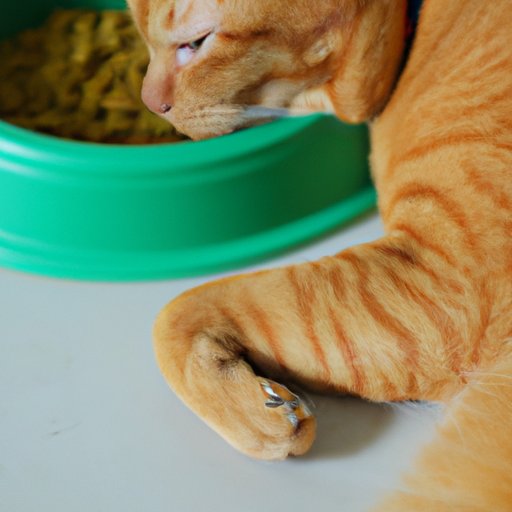
I. Introduction
Cats, much like humans, need to maintain a healthy weight to live a long and healthy life. Underweight cats can suffer from a range of health problems, including weakened immune systems, increased vulnerability to illness, and even organ failure. This is why it is important to address this issue. The purpose of this article is to provide tips and advice for owners who are concerned about their cat’s low body weight. This article is intended for cat owners who want to ensure their beloved pet is healthy and happy.
II. Understanding the Causes of Underweight in Cats
There are several causes of underweight in cats. These include health problems, such as hyperthyroidism, gastrointestinal diseases, dental issues, or cancer. Digestive issues, including intestinal worms, inflammation, or malabsorption syndrome, can also contribute to weight loss. Stress and anxiety can also cause weight loss in cats. Finally, inadequate or inappropriate diet may also lead to being underweight.
III. Tips for Helping Your Cat Gain Weight
Here are several tips to help your cat gain weight:
A. Feeding frequency
Feeding your cat more frequently throughout the day is a common recommendation for feline weight gain. Instead of feeding your cat one or two large meals per day, give them smaller portions of food more often. This may encourage your cat to eat more and prevent them from becoming full too quickly.
B. High-calorie treats
You can supplement your cat’s regular meals with high-calorie treats. Examples of high-calorie treats include freeze-dried chicken or salmon, boiled eggs, or cheese. However, make sure to limit the amount of treats given to your cat and ensure they do not become the main staple of the cat’s diet.
C. Wet food
Wet food is more palatable and allows for easier digestion. You may want to consider adding some wet food to your cat’s diet to help them gain weight. Wet food can also provide a higher calorie count in each meal compared to dry food, which can help your cat gain weight gradually over time.
D. Nutritious food
Offering your cat nutritious foods will help them regain and maintain a healthy weight. The cat’s diet should include a good source of protein from animal protein such as meat, fish, or poultry. High-quality cat food is usually the best option as it offers all of the required nutrients that your cat needs.
E. Supplements
Supplements could be a great option to assist in weight gain, especially if there are digestive issues. There are a range of weight gain supplements specifically formulated for cats that you can try after consulting with your veterinarian.
F. Exercise
Exercising your cat can make them hungrier and encourage them to eat more. Regular playtime can stimulate your cat’s appetite. Cats can safely exercise through short play sessions or gentler activities like running after a feather toy or ball.
IV. Ensuring Safe and Healthy Weight Gain
It’s important to remember that cat should not be gaining too much weight too quickly since it can lead to health issues such as diabetes. Gradual weight gain is safer and more effective. Keep your cat on a strict feeding regimen and monitor their weight by checking it regularly, and consult with your vet if necessary for any sudden changes or concerns.
V. Expert Opinions
Experts generally agree on the advice mentioned in this article, although it is always good to get an opinion from a veterinary professional. A veterinarian is the best resource for determining the cause of your cat’s weight loss and what advice is best for your furry friend.
VI. Conclusion
If you’re struggling to help your cat gain weight, remember that it is a process that requires patience, consistency, and empathy. Try a combination of the above tips and don’t hesitate to consult with your vet for more specific advice.





